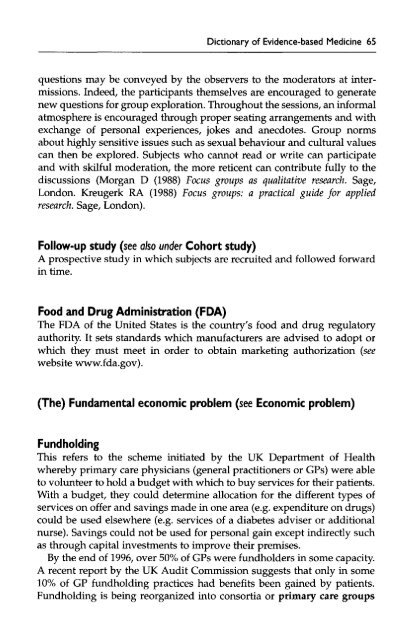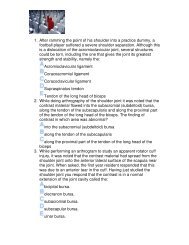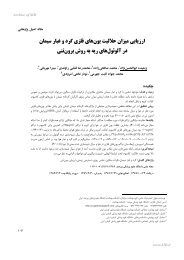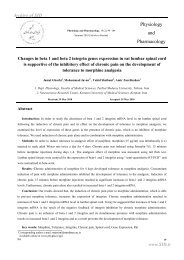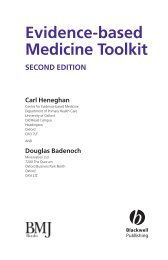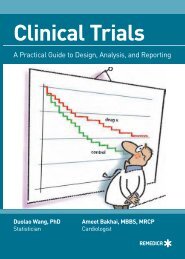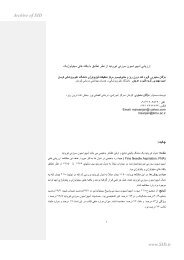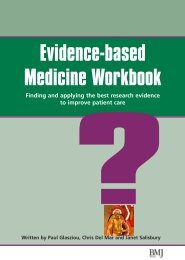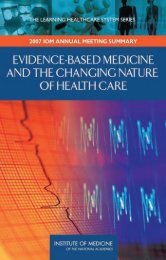Dictionary of Evidence-based Medicine.pdf
Dictionary of Evidence-based Medicine.pdf
Dictionary of Evidence-based Medicine.pdf
Create successful ePaper yourself
Turn your PDF publications into a flip-book with our unique Google optimized e-Paper software.
<strong>Dictionary</strong> <strong>of</strong> <strong>Evidence</strong>-<strong>based</strong> <strong>Medicine</strong> 65<br />
questions may be conveyed by the observers to the moderators at intermissions.<br />
Indeed, the participants themselves are encouraged to generate<br />
new questions for group exploration. Throughout the sessions, an informal<br />
atmosphere is encouraged through proper seating arrangements and with<br />
exchange <strong>of</strong> personal experiences, jokes and anecdotes. Group norms<br />
about highly sensitive issues such as sexual behaviour and cultural values<br />
can then be explored. Subjects who cannot read or write can participate<br />
and with skilful moderation, the more reticent can contribute fully to the<br />
discussions (Morgan D (1988) Focus groups as qualitative research. Sage,<br />
London. Kreugerk RA (1988) Focus groups: a practical guide for applied<br />
research. Sage, London).<br />
Follow-up study (see a/so under Cohort study)<br />
A prospective study in which subjects are recruited and followed forward<br />
in time.<br />
Food and Drug Administration (FDA)<br />
The FDA <strong>of</strong> the United States is the country's food and drug regulatory<br />
authority. It sets standards which manufacturers are advised to adopt or<br />
which they must meet in order to obtain marketing authorization (see<br />
website www.fda.gov).<br />
(The) Fundamental economic problem (see Economic problem)<br />
Fundholding<br />
This refers to the scheme initiated by the UK Department <strong>of</strong> Health<br />
whereby primary care physicians (general practitioners or GPs) were able<br />
to volunteer to hold a budget with which to buy services for their patients.<br />
With a budget, they could determine allocation for the different types <strong>of</strong><br />
services on <strong>of</strong>fer and savings made in one area (e.g. expenditure on drugs)<br />
could be used elsewhere (e.g. services <strong>of</strong> a diabetes adviser or additional<br />
nurse). Savings could not be used for personal gain except indirectly such<br />
as through capital investments to improve their premises.<br />
By the end <strong>of</strong> 1996, over 50% <strong>of</strong> GPs were fundholders in some capacity.<br />
A recent report by the UK Audit Commission suggests that only in some<br />
10% <strong>of</strong> GP fundholding practices had benefits been gained by patients.<br />
Fundholding is being reorganized into consortia or primary care groups


